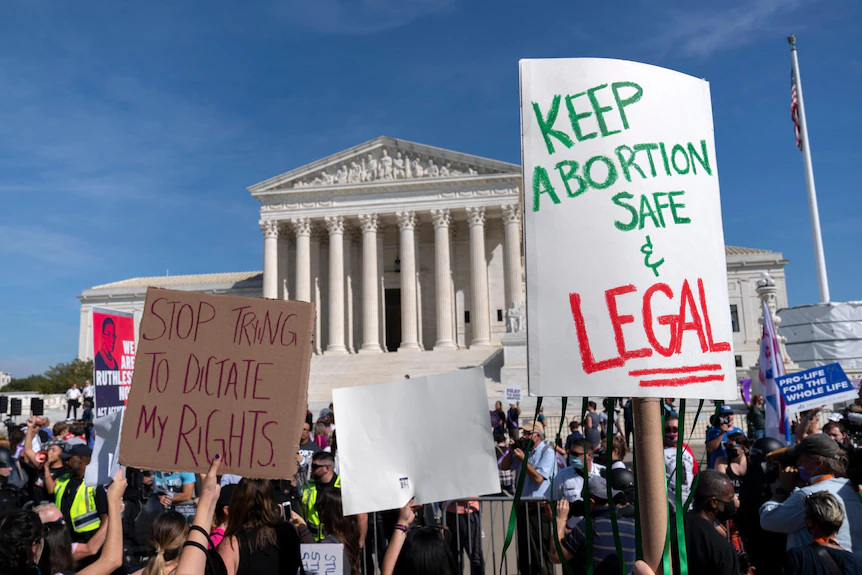On Monday night, a draft Supreme Court opinion that would overturn Roe v. Wade if officially released was leaked. The opinion was written by Justice Samuel Alito as a draft of the majority decision in Dobbs v. Jackson Women’s Health Organization.
The leak spawned a nationwide backlash to the apparent decision, with protestors gathering outside of the Supreme Court and in streets across the country. On Tuesday, protesters gathered outside the Edward N. Cahn U.S. Courthouse & Federal Building in Allentown, where Congresswoman Susan Wild (PA-07) spoke.
“This ruling is a gut-punch to women of all races, ages and economic circumstances,” Wild told the assembled crowd. “The will of the American people is being violated as part of an ideological crusade by far-right forces, and it means that all of our constitutional rights are at stake.”
“One of the big pieces of the argument that the draft opinion makes is that Roe vs. Wade was egregiously wrong, when it was decided, and that it has been wrong from day one, and it continues to be wrong,” Government & Law Professor Helena Silverstein said. “Justice Alito’s arguing that abortion is neither deeply rooted in our country’s history nor implicit in our concept of ordered liberty.”
Silverstein said that she was not personally convinced by the opinion.
“I’m not particularly persuaded by the way in which he argues that this abortion right is not deeply rooted in our country’s history,” Silverstein said. “I also find the argument that it’s not rooted in our concept of ordered liberty to be not particularly persuasive.”
Many members of the campus community are worried about what could come next. Lia Charles ‘22, president of Lafayette for Reproductive Autonomy, Justice and Empowerment, is one of the students particularly concerned.
“I think what’s going to happen is that there’s going to be a push for a national abortion ban,” Charles said. “I think if the Republicans take the house in November and if they recapture the Senate, and they get a large majority in the Senate, they could pass a national abortion ban, and potentially override Biden’s veto of it.”
Silverstein also mentioned concern about what this decision could mean for other constitutional issues.
“What many people who have been defending the right to abortion have been saying is that if you overturn this precedent, then you are opening the door to overturning all sorts of substantive due process rights precedents,” Silverstein explained. “Contraception, consensual sexual intimacy, marriage—those are not explicitly in the Constitution. But they’ve been found to be protected by the rights that are explicit in the Constitution.”
Some conservatives on campus are also concerned about the decision. Dimitri Chernozhukov ’25, the incoming president of College Republicans, expressed concerns, clarifying that they are his “personal opinion, not that of the Lafayette College Republicans as a whole.”
“Elective abortions (as opposed to those done in cases of medical necessity, rape or incest) should only be done in the first trimester,” Chernozhukov wrote in an email. “In my opinion, overturning Roe V. Wade will lead to a dangerous situation where many states implement laws that ban the vast majority of abortions that occur now, a sharp contrast with a first-trimester limit that would still allow about 90% of elective abortions that currently occur.”
For students on campus who oppose the apparent decision and are looking to take action, Silverstein emphasized the importance of voting.
“I think one of the main things is elections,” Silverstein said. “We are seeing the results of a strategy that has been put into place by conservatives that is coming to fruition. And one key way to try to combat that is through elections because elections have consequences both on who’s on the Supreme Court but also on the passing of national legislation and the passing of state legislation.”



























































































































